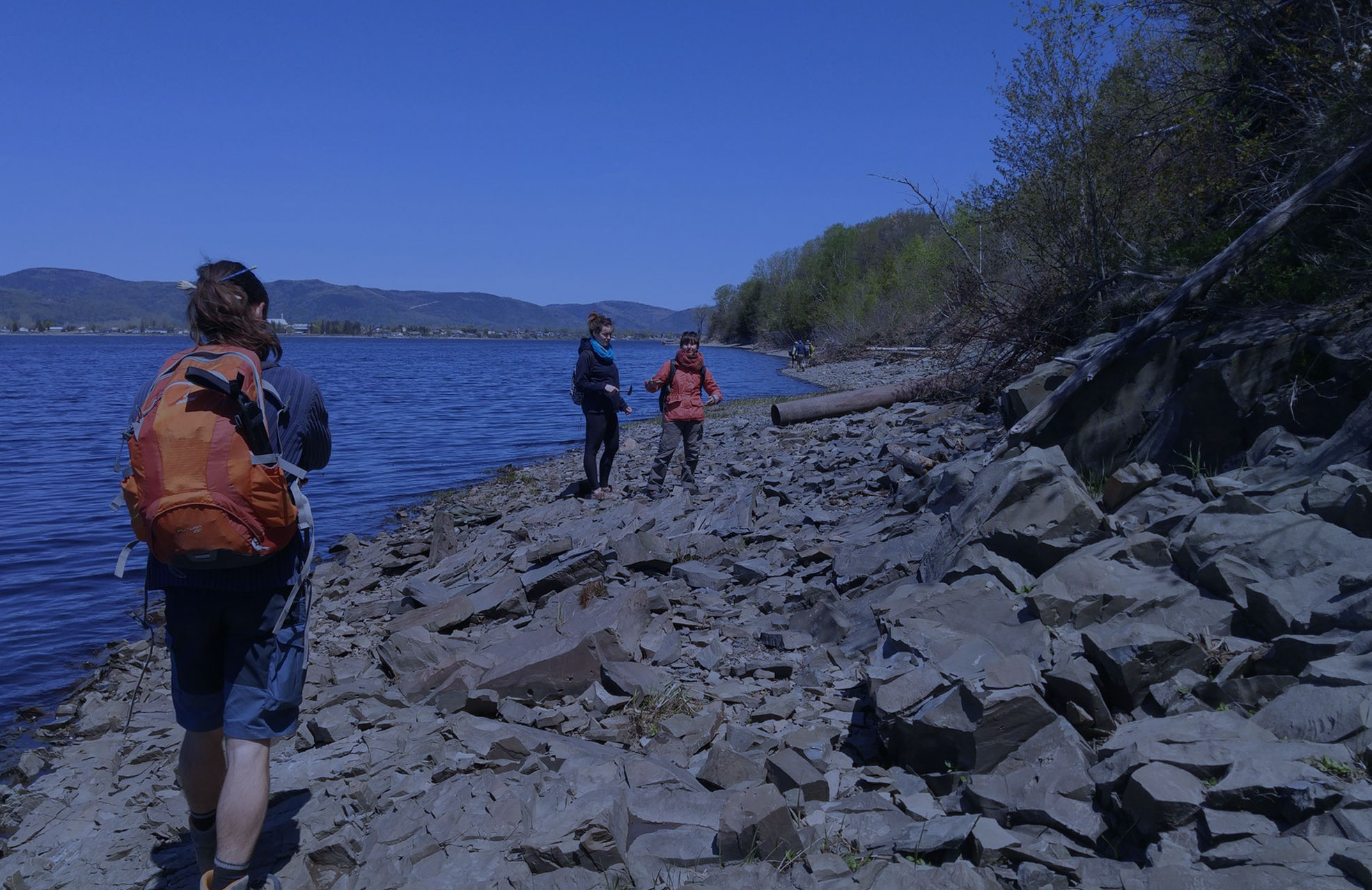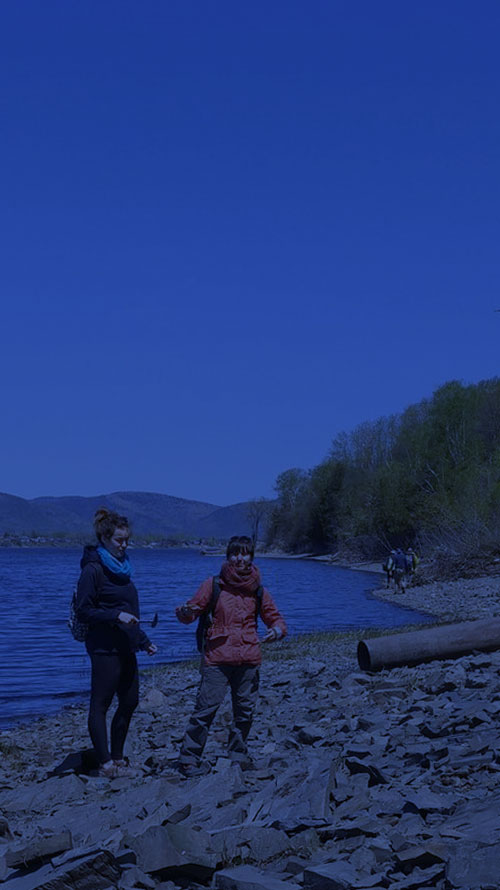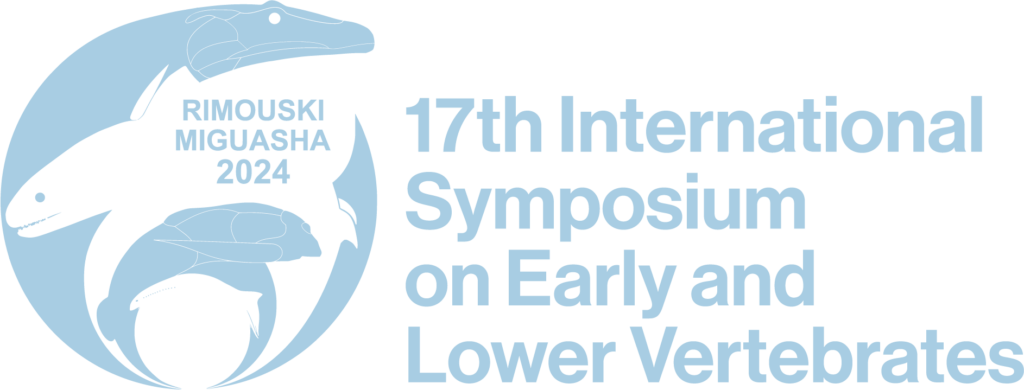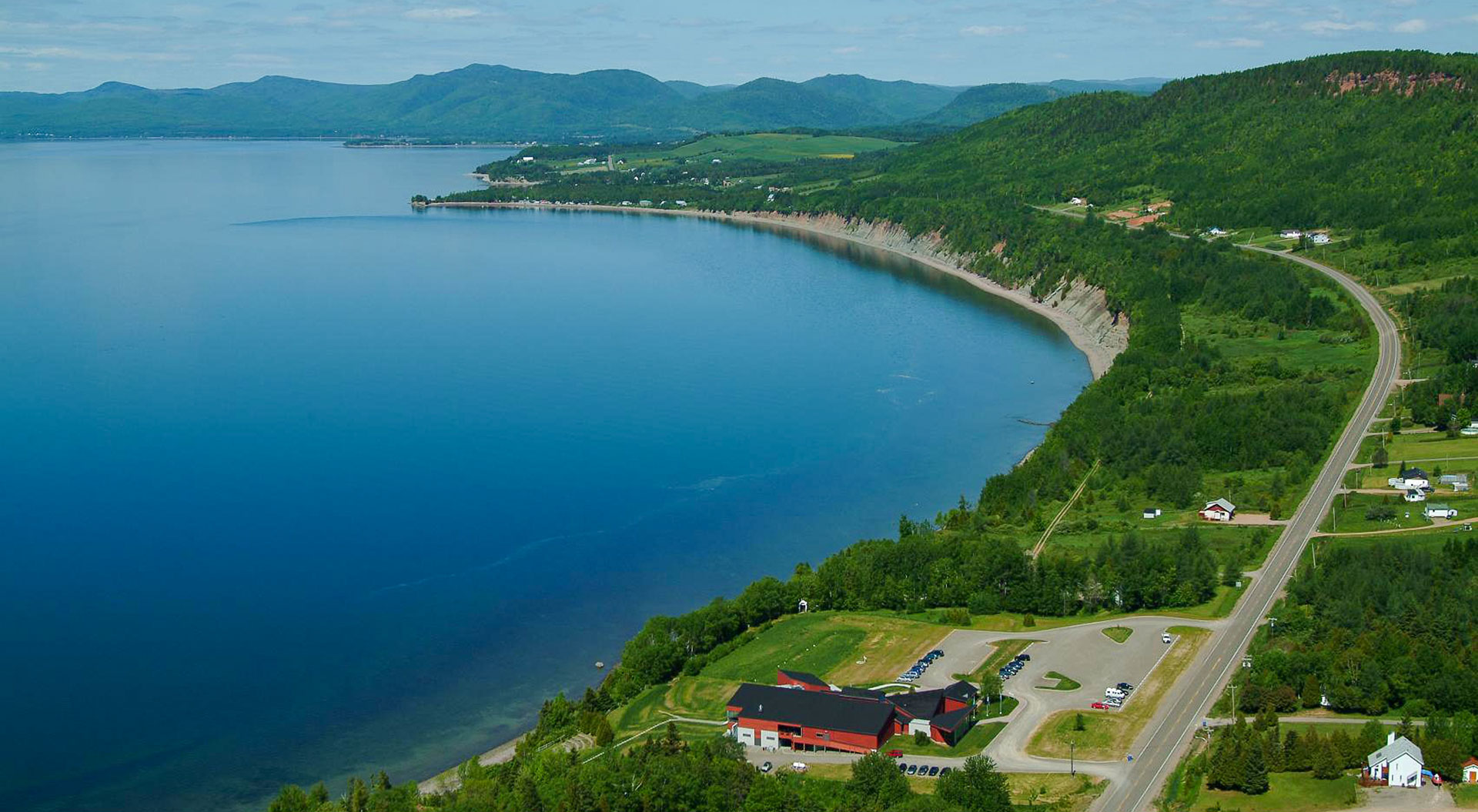


Fieldtrips
A three-day trip to visit the collections at the Canadian Museum of Nature and the Royal Ontario Museum en route to the ISELV main conference, including a behind-the-scene tour of the Burgess Shale collections by Dr. Jean-Bernard Caron!
Day 1 (June 14th): Ottawa
- Early morning pick up at the designated location in Montréal; drive to Ottawa
- Tour of the downtown gallery of the Canadian Museum of Nature
- Tour of the collections facility of the Canadian Museum of Nature
- Field stops in Ottawa downtown (incl. Ordovician stromatolites)
- Overnight in Ottawa
Day 2 (June 15th): Toronto
- Early morning departure to Toronto
- Tour of the collections of the Royal Ontario Museum, featuring the Burgess Shale materials with the special tour guide Dr. Jean-Bernard Caron
- Tour of the Dawn of Life gallery at the Royal Ontario Museum
- NAPC participants will be dropped off at the Union Station, Toronto, to take VIA Rail to Windsor. They should arrange for overnight accommodation in Windsor and travel to Ann Arbor the next day.
- ISELV participants will ride east toward Montreal.
Day 3 (June 16th): Rimouski
- Early morning departure; drive through Montréal
- Lunch and a short excursion in Quebec City
- Late afternoon arrival in Rimouski
For fieldtrip inquiries please contact Tetsuto Miyashita (TMiyashita@nature.ca)
A five-day trip to visit major Paleozoic vertebrate localities of Atlantic Canada
Day 1 (June 23rd): Devonian-Carboniferous Transitions in southern New Brunswick
- Early morning departure from Carleton-sur-Mer; drive south to Saint John
- Visit the Stonehammer UNESCO Global Geopark
- Tour of the collections facility of the New Brunswick Museum
- Potential stops at Pennsylvanian localities to the north of Saint John (conditions permitting)
- Overnight in Saint John or Moncton
Day 2 (June 24th): Albert Mine, a Mississippian Lagerstätte
- Morning departure from Saint John or Moncton
- Potential field excursion to the Tournaisian localities north of Saint John
- Field activities in Albert Mine, a major vertebrate assemblage dated to Tournaisian, led by Dr. Matt Stimson, New Brunswick Museum
- Overnight stay between Moncton and Amherst
Day 3 (June 25th): Joggins and the Bay of Fundy
- Guided tour of Joggins Fossil Cliffs, a UNESO World Heritage site
- Field excursion followed by lunch
- Visit the Fundy Geological Museum
- Potential field excursion near Parrsboro
- Overnight accommodation in Truro or Halifax
Day 4 (June 26th): Carboniferous localities of Cape Breton
- Early morning departure to Cape Breton
- Visit the Pennsylvanian tree stomp localities in Point Aconi, near Florence
- Potential excursion to Sydney Coal Mine at the Cape Breton Miners Museum
- Drive back to Halifax
Day 5 (June 27th): Blue Beach, Horton Bluff
- Guided tour of Blue Beach localities, a significant Tournaisian site that produces tetrapod materials as well as fishes
- Visit with the Blue Beach Fossil Museum
- Overnight accommodation in Halifax
At the conclusion of the fieldtrip, we will disband in Halifax. The most convenient way home will be to fly out from Halifax. However, those participants who will fly out from Montréal (YUL) are welcome to ride with the fieldtrip leaders driving back to Ottawa through Montréal. This will be a 1.5-day trip. We will depart Halifax in the morning of June 28th and will likely stay overnight in the vicinity of Québec City. On June 29th we will continue driving toward Ottawa, and likely pass through Montreal around midday. Therefore, your return flight should be in the late evening hours of the 29th or later. Overnight accommodation after the fieldtrip is not included in the fee.
For fieldtrip inquiries please contact Tetsuto Miyashita (TMiyashita@nature.ca)
June 21
Destination: Lower Devonian Atholville Beds, New Brunswick and the Upper Devonian Escuminac Formation, Miguasha, Québec
- Morning : Departure from Rimouski to the Lower Devonian Atholville Beds in New Brunswick. The journey will include scenic views and insights into the historical geology of the Appalachian belt. Attendees will have the opportunity to explore the Lower Devonian Atholville Beds, known among other things for the oldest and most complete chondrichthyan, Doliodus latispinosus.
- Afternoon : Continue your exploration of the Lower Devonian Atholville Beds. Departure from Atholville to the Parc national de Miguasha, the world-renowned UNESCO World Heritage Site for the Upper Devonian Escuminac Formation. Welcoming by the personnel of the parc national de Miguasha (SEPAQ). Visit of the museum.
- Evening : Overnight stay at Carleton-sur-Mer, with dinner provided or optional dining arrangements.
June 22
Destination: Parc national de Miguasha, Upper Devonian Escuminac Formation (UNESCO World Heritage Site)
- Morning : Departure to Parc national de Miguasha. Collecting in the main outcrop (René Bureau’s cliff)
- Afternoon : Continue exploration of the park. Attendees will have the privilege of closely examining the specimens in the collections.
- Evening : The closing banquet in Carleton-sur-Mer will provide a delightful and celebratory event to mark the conclusion of the symposium.
The Lower Devonian Atholville Beds and Parc national de Miguasha are significant sites in the study of early and lower vertebrates. Additional details regarding the field trip, including transportation, fieldguides, and specific schedules, will be provided closer to the symposium date.
We encourage all registered participants to take advantage of this unique opportunity to explore these remarkable geological and paleontological sites. If you have any questions or require further information about the fieldtrips, please do not hesitate to contact our symposium organizers at 17ISELV@uqar.ca. We look forward to sharing this enriching experience with you.
Notes :
- Attendees should wear appropriate clothing and footwear for outdoor exploration, as some areas may involve hiking and uneven terrain.
- Please bring any necessary personal items, such as sunscreen, water bottle, and raincoat. Average temperature in June, in Québec, is between 10-20 C.
